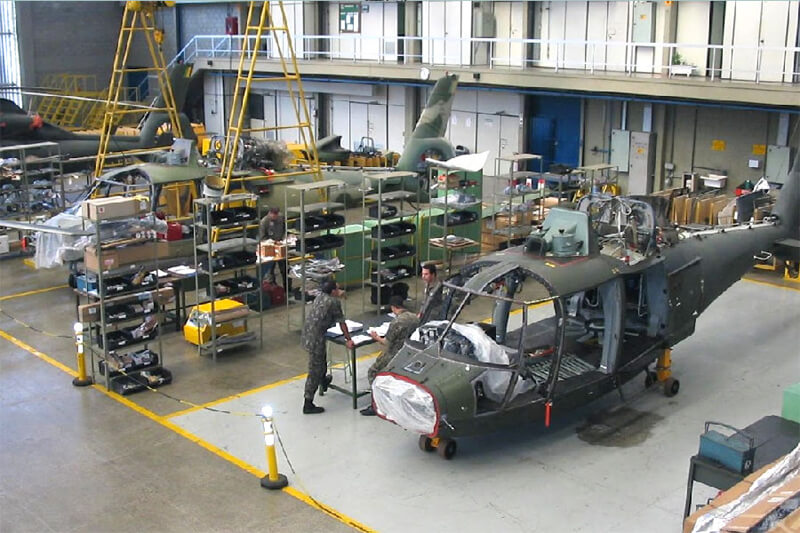On Wednesday, Indian Defence Minister (DM) Rajnath Singh announced a new ‘positive indigenisation list’ comprising 98 items, including advanced systems, sensors, weapons, and ammunition, that would only be acquired from domestic industry.
Singh announced the fifth positive indigenisation list during the Indian Navy’s ‘Swavlamban 2.0’ seminar. As per the announcement, these items will be bought from indigenous sources in a phased timeline as specified in the Defence Acquisition Procedure (DAP) 2020.
India’s Fresh Positive Indigenisation List
The Ministry of Defence has initiated various initiatives towards self-reliance in the defence industry, with Positive Indigenisation Lists being one of the most important transformational changes in pursuing indigenisation.
The Department of Military Affairs (DMA) developed the Fifth Positive Indigenisation List following multiple rounds of consultation with various stakeholders. It focuses on the import substitution of components of major systems, along with weapon systems, sensors, and munitions, which are being developed and will probably result in firm orders in the next five to ten years.
The essential items on the list are a futuristic infantry combat vehicle, remotely piloted airborne vehicles (up to 25 km range with a payload of 2 kg for the Army), a shipborne unmanned aerial system, a medium upgrade low endurance class tactical drone, a next-generation low-level light radar for the Army, and an electro-optic fire control system for naval platforms.
#WATCH | At the Plenary Session of Indian Navy NIIO seminar on Swavlamban, Defence Minister Rajnath Singh says, "...So far, four positive indigenisation lists of 411 items have been released. Today, on this important occasion fifth positive indigenisation list has been released.… pic.twitter.com/nq9TlapreE
— ANI (@ANI) October 4, 2023
Additionally, the list also mentions Armoured Fighting Vehicle (AFV) Protection and Counter Measures System, Integrated Mobile Camouflage System, AI-Based Satellite Image Analysis, Test Equipment for Guided Weapon System for Tank T- 90 S/SK.
Apart from these, Armour Plates for Cabin Nose Sections for Mi-17 Helicopter, Multifunction Aviation Ground Equipment for Air Force, Gravity Rollers for Mi-17 V5 Helicopter, and flares of P-8I and MiG 29-K Aircraft, are included as well.
The Positive Indigenisation list is a vital component of the government’s ‘Aatmanirbhar Bharat Abhiyan’, which aims to modernise the defence industry to attain self-reliance and enhance exports with the active engagement of the public and private sectors.
The announcement also mentions that previously, the DMA issued four Positive Indigenisation Lists totalling 411 military products. Separately, the Department of Defence Production (DDP) has announced four Positive Indigenisation Lists totalling 4,666 items, including Line Replacement Units/Subsystems/Spares and Defence Public Sector Undertakings (DPSUs) components.
The Positive Indigenisation Lists have intended to create a robust and self-sufficient defence sector while reducing imports.
Additional Announcements under ‘Raksha Mantri’
Separately, Singh announced 76 challenges for the sector under DISC 10 & DISC 10 PRIME to commemorate India’s 76th year of independence. Problem statements from the three Services, Indian Coast Guard, DPSUs, Border Roads Organisation, and Mission DefSpace are among these challenges.
Attended the plenary session of ‘Swavlamban 2.0’ in New Delhi.
— Rajnath Singh (@rajnathsingh) October 4, 2023
⁰The 5th Positive Indigenisation List, comprising 98 items which includes Highly complex systems, sensors, weapons & ammunition was released today. It is in line with our vision for ‘Atmanirbharta in Defence’.… pic.twitter.com/CMHSctBeK8
Singh also introduced two ‘INDUS-X challenges’ under the ‘INDUS-X Mutual Promotion of Advanced Collaborative Technologies’ (IMPACT) challenges, collaboratively finalised by iDEX and the US Department of Defence (DoD).
Additionally, the Indian DM praised the DDP for its role in building a self-sufficient India through initiatives such as iDEX, NIIO, and Technology Development Acceleration Cell (T-DAC), but stated that more efforts are needed to connect the youth with the defence sector, particularly in R&D and manufacturing.
Finally, he introduced the SBI NAVeCash Card, a one-of-a-kind dual-chip debit card. The State Bank of India (SBI) and the Indian Navy developed it together.
In his speech, Singh stated that India has always been self-sufficient in knowledge and innovation, and when the PM Narendra Modi Administration came to power in 2014, it revived the sense of being “Aatmanirbhar” (self-sufficient) in every sector.
“Due to foreign invasions, we had forgotten our innovative approach. The word ‘local’ became synonymous with low quality. We’re now freeing ourselves from that mentality,” Singh remarked.

